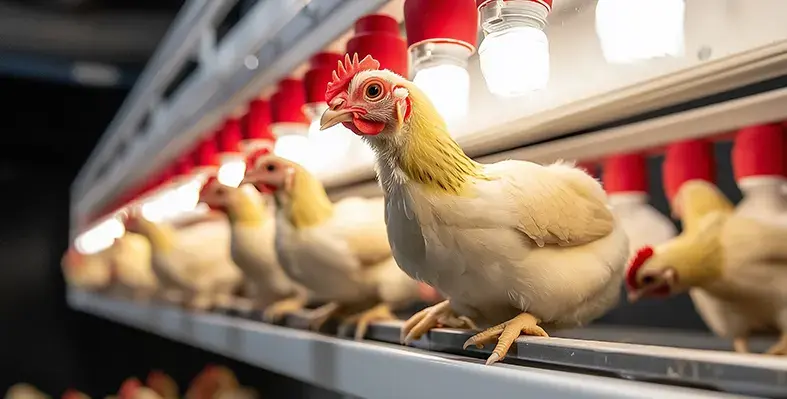In 2019, South Africa’s Poultry Sector Master Plan (PSMP) was launched with bold ambitions: to protect the industry from dumped imports, boost local production, grow exports, create jobs, and expand black ownership.
Six years later, while the vision still resonates, the momentum behind it is fading.
The PSMP was designed as a joint public–private effort to rebuild the country’s broiler value chain, which had suffered years of damage from unfair trade. It focused on five key pillars: enforcing trade remedies, stimulating local demand and production, expanding exports, supporting transformation, and improving governance through a dedicated oversight council.
In its early phase, the plan showed real promise. The poultry industry responded quickly, committing over R2.2 billion in new investments — surpassing the initial R1.5 billion target. Trade measures, supported by bird flu outbreaks abroad, began to reduce dumped imports, offering local producers some relief.
Major producers expanded operations, onboarded contract growers, and created jobs. Emerging farmers were integrated into formal value chains through offtake agreements, marking visible progress in transformation. These developments proved that when government and industry worked in sync, results followed.
But since the last election, progress has stalled. Responsibility for the PSMP was shifted to deputy ministers, and political attention drifted. While government leaders, including Gauteng MEC Ramokgopa and Agriculture Minister John Steenhuisen, have reaffirmed their commitment — citing new financial packages, bird flu vaccination plans, and improved cold chains — much of it remains on paper.
Exports, a cornerstone of the plan, are still blocked by red tape. Negotiations with key markets like the EU, UAE, and Saudi Arabia have made little headway. Veterinary labs remain underfunded and understaffed, delaying health certification. As one insider put it, “Exports die in the lab. Producers are ready, but the paperwork isn’t.”
The plan also promised blended finance to help small and black-owned producers scale up. Yet funding access remains limited, and government-imposed conditions on vaccine rollouts have made key health programmes unaffordable and impractical for producers.
Ultimately, the Master Plan was never meant to be carried by the private sector alone. It’s a shared compact — one that depends on both sides delivering. The poultry industry has largely honoured its commitments. Now, government must match that effort with urgent, transparent and time-bound action.
South Africa’s poultry sector still holds massive potential — for rural jobs, food security, black empowerment and export growth. But unless government moves beyond promises to delivery, the PSMP risks becoming a cautionary tale of plans made, but not kept.





